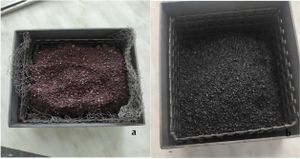Jamel, a tiny village in North Germany, has become increasingly synonymous with resilience against the rising tide of neo-Nazi sentiment within its borders. Home to only 38 residents, this community, predominantly populated by individuals affiliated with far-right ideologies, plays host each summer to the now-iconic music festival, "Jamel rockt den Förster." Established by artists Birgit and Horst Lohmeyer, the festival has evolved since its 2007 inception, becoming not just a celebration of music but also a clarion call for democracy, tolerance, and humanity.
The Lohmeyers originally sought rural tranquility when they moved to Jamel, but soon realized the extent of the village's far-right leaning populace. Surrounded by blatant neo-Nazi propaganda, the couple understood the pressing need to make their voices heard. "If you want to survive here, you must go public," they declared, sparking the inception of the festival as a peaceful yet defiant gesture against oppression.
Over the years, the festival has garnered attention from prominent bands and artists across Germany. Notable performers have included Die Ärzte, Die Toten Hosen, and Herbert Grönemeyer, all lending their voices to what has emerged as a powerful symbol of resistance. The festival's mission is clear: oppose the growing extremism and instill principles of tolerance within the community. Following a troubling arson attack on the Lohmeyers' barn back in 2015, the music scene responded fervently, with the Toten Hosen even declaring: "It’s also your country, and you are guilty if you close your eyes to it!"
2024 marked the 17th edition of the festival, which sold out within hours, reflecting its unwavering support and significance. With musical acts like The Fantastischen Vier and Ebow taking the stage, the festival served as not only entertainment but also as protest, uniting attendees against the pervasive threats of hate and division.
Reflecting on their experience, Birgit Lohmeyer recently commented, "For us, it is normal to see Nazis parading through our village." This stark admission highlights the uncomfortable reality many people living near extremist factions face. Nevertheless, the Lohmeyers remain steadfast. They choose to confront adversity with courage, welcoming musicians and guests who share their vision of peace and acceptance.
Beyond the notes of music and the cheers of enthusiastic crowds, the festival's significance reaches far and wide. It embodies community resilience and several years of hardened activism against intolerance. The Lohmeyers’ dedication resonates well past Jamel, sending ripples across Germany as other communities reflect upon their stances against growing far-right ideologies.
Filmmaker Martin Groß has captured the essence of the festival through his documentary, "Jamel – lauter Widerstand." This film chronicles the Lohmeyers’ struggles, intricately weaving their personal stories with interviews from participating musicians. It provides insight not just to the festival's inception but also to the burgeoning network of solidarity it has inspired among artists from various backgrounds.
The continuous operation of "Jamel rockt den Förster" is imperative. Each summer, it galvanizes support, rallying not just locals but people from across the nation, encouraging collective action against rising intolerance. While the country witnesses waves of extremism, the festival remains a beacon of hope—a powerful reminder of the strength of community bonds and the capacity for art to spearhead change.
With each iteration of the festival, the calls for democracy become louder, drowning out the messages of hate. Amidst the shadows of far-right ideology, Jamel serves not merely as a village but as the epicenter of peaceful resistance—an assertion of what can be achieved when communities unite under shared values of dignity and respect.



